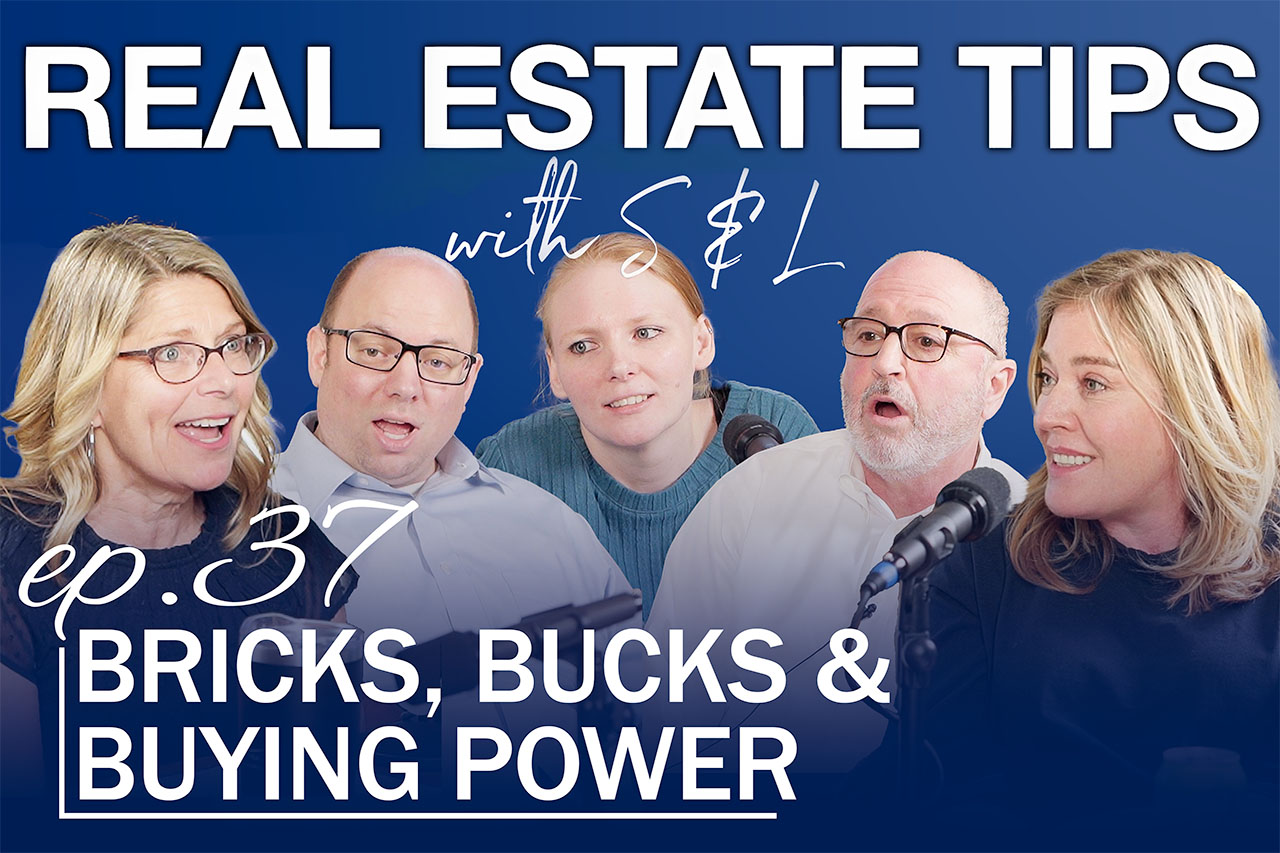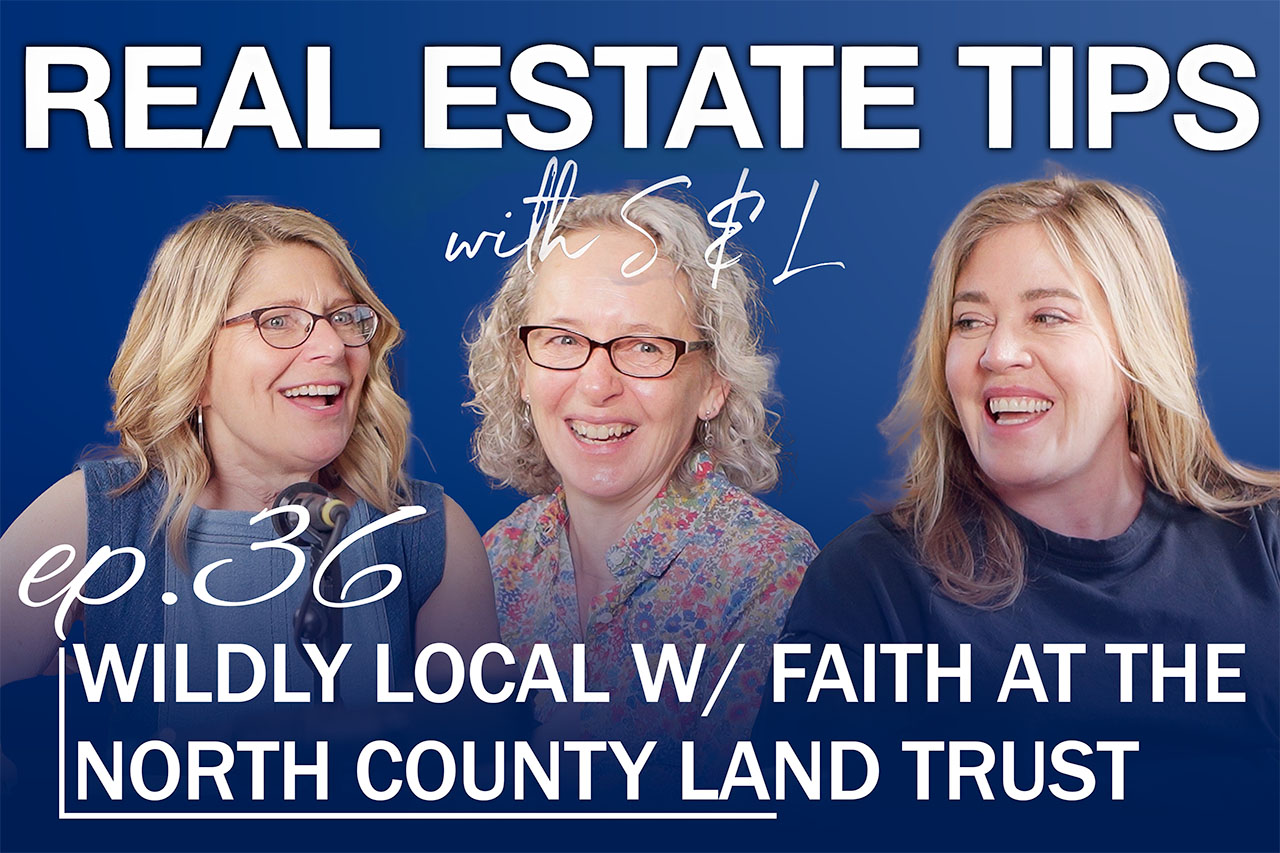
Episode 39 – Mindset, Mistakes, and Magic: A Chat with Sara & Lana
Every successful real estate journey is shaped by a blend of mindset, lessons learned, and a little bit of magic along the way. In this episode of Bricks, Bucks & Buying Power, I sit down with two powerhouse guests—Sara and Lana—to explore how personal growth, professional hurdles, and bold decisions all come together to create thriving businesses and fulfilling lives.
Meet Sara & Lana
Sara and Lana each bring a unique story and perspective to the table. Both women have carved their own paths in real estate, navigating challenges and transforming setbacks into opportunities. Their journeys highlight the importance of resilience, community, and choosing courage over comfort.
What We Cover in This Episode
Our conversation touches on the themes that matter most to anyone striving for success in real estate—or any business:
-
Mindset Shifts – Why the way you think about challenges directly impacts the outcomes you create.
-
Lessons from Mistakes – How Sara and Lana reframed “failures” into valuable building blocks for growth.
-
The Role of Magic – Whether you call it intuition, alignment, or serendipity, we dig into those intangible moments that push you forward.
-
Building Confidence – Practical strategies for finding your voice, showing up authentically, and leading with clarity.
-
Collaboration Over Competition – The power of partnerships and learning from others’ experiences.
Why This Episode Matters
In real estate, it’s easy to focus only on numbers, deals, and strategies—but the truth is, your mindset is what drives long-term success. Sara and Lana’s stories are a reminder that success is rarely linear. It’s a process of embracing mistakes, staying open to growth, and trusting that a little bit of magic will always show up when you keep moving forward.
Tune In
If you’ve ever questioned whether you’re on the right track, struggled with self-doubt, or wondered how to bounce back from setbacks, this episode will leave you feeling inspired and equipped with practical takeaways.
🎧 Listen to Episode 39 now!
Have questions about real estate? I’m always happy to help—let’s connect.
Watch on YouTube or listen wherever you get your podcasts!
Check out My Little Black Book for a list of my trusted service professionals.
I am your local real estate expert Making Realty Dreams Reality. Give me a call at 978-855-9112 or fill out this contact me form to get started on your homeownership journey.

Episode 38: Fire, Flood, and Falling Trees – Are You Protected?
Natural disasters aren’t something we like to think about—until they happen. And by then, it’s too late to protect your home, your investment, or your peace of mind.
In this episode of Bricks, Bucks & Buying Power, we’re digging into the less glamorous (but critically important) side of real estate: risk, coverage, and disaster preparedness. Whether you’re a first-time buyer, long-time homeowner, or a real estate investor with multiple properties, the hard truth is this: standard insurance isn’t always enough.
What's Actually Covered (And What’s Not)
Joining us for this conversation is Joe Carter, a seasoned insurance agent and risk management expert who breaks down exactly what homeowners (and buyers) think is covered versus what actually is. Spoiler alert: fire? Yes. Floods? Not always. Falling trees? It depends.
We get into:
-
The top overlooked insurance gaps that could cost you thousands
-
Why flood insurance matters, even if you’re not in a floodplain
-
What to ask your insurance agent before disaster strikes
-
How investors can structure coverage across multiple properties
-
And what to do right now if your property is vulnerable to fire, water, or wind damage
This episode is part cautionary tale, part practical checklist—because the reality is, most of us don’t realize what we’re missing until it’s too late. And with more frequent weather events and rising repair costs, being underinsured can be financially devastating.
A Quick Reality Check
Here’s the bottom line: Your home is likely your biggest asset. But in the insurance world, assumptions can be expensive. If you haven’t reviewed your policy in over a year, or if you’ve made upgrades like finishing a basement or adding an ADU, you might already be underinsured.
And if you’re an investor? Not all policies are created equal. Joe walks us through options tailored for rental properties, second homes, and even fix-and-flips.
Take Action Today
You don’t need to be an expert—you just need to ask the right questions. Start with these:
-
Do I know my deductible for fire, wind, and flood claims?
-
Do I have enough loss-of-use coverage if I can’t live in my home?
-
Are my valuables (jewelry, art, electronics) properly covered?
-
What happens if my tree damages a neighbor’s house?
If you couldn’t answer those confidently, this episode is your must-listen.
🎧 Listen to Episode 38 now and take the first step toward better protection.
Have questions about homeownership or investing? Want a second look at your property coverage or a referral to a trusted insurance pro in your area? I’m always happy to help—let’s connect.
Watch on YouTube or listen wherever you get your podcasts!
Check out My Little Black Book for a list of my trusted service professionals.
I am your local real estate expert Making Realty Dreams Reality. Give me a call at 978-855-9112 or fill out this contact me form to get started on your homeownership journey.

Episode 37 — Bricks, Bucks & Buying Power
With Dave Stead, Jen Fox & Kerry Morton
In this episode, we’re breaking down one of the most important (and misunderstood) parts of the buying process: financing. Whether you're a first-time buyer, an investor, or just real estate-curious, understanding how lending works—and how to use it strategically—can change everything.
To unpack it all, I brought in a powerhouse trio of local lending experts: Dave Stead, Jen Fox, and Kerry Morton. These three know the market, know the numbers, and—maybe most importantly—know how to talk to clients like real people.
💡 What We Talked About:
We covered a lot of ground in this one—from credit scores and debt-to-income ratios to the role local lenders play in making or breaking deals. But one core message came through: buying power isn’t just about your bank account—it’s about your team, your timing, and your mindset.
Here are just a few of the key takeaways:
-
Local lenders vs. big banks: Why working with a local expert can make the process smoother, faster, and less stressful for everyone involved.
-
Credit confusion: The difference between what you think your credit score is and what actually matters to a lender.
-
Pre-approval myths: What it really means to be "pre-approved" and why it's more than just an online form.
-
Debt-to-income ratios: How this number is calculated, and why buyers with student loans or other debts aren’t automatically disqualified.
-
Mindset shifts: How to move away from "waiting for rates to drop" and instead focus on buying smart now—with the option to refinance later.
🎧 Whether you're a seasoned investor or just curious about building wealth, this episode delivers real-world takeaways, watch on YouTube or listen wherever you get your podcasts!
Check out My Little Black Book for a list of my trusted service professionals.
I am your local real estate expert Making Realty Dreams Reality. Give me a call at 978-855-9112 or fill out this contact me form to get started on your homeownership journey.

Episode 36 – Wildly Local with Faith at the North County Land Trust
In this episode, we dive deep into the heart of North Central Massachusetts conservation efforts with Faith from the North County Land Trust (NCLT) — a nonprofit that's been protecting the region's land, wildlife, and natural beauty since 1992. If you’ve ever hiked a local trail, admired an untouched forest, or picked up fresh veggies at a local farmstand, chances are the NCLT has played a part in keeping those wild and wonderful spaces thriving.
🌿 Who is the North County Land Trust?
Based in Leominster, the North County Land Trust is focused on land conservation, stewardship, and environmental education. Their mission goes beyond just protecting open space — they actively engage with the community through outreach, education, and partnerships with towns and landowners.
Faith walks us through how land trusts like NCLT operate — from working with private landowners to preserve property, to restoring habitat for threatened species, and ensuring public access to some of the most beautiful places in the region.
🏞️ Why This Work Matters Now
As development expands and climate change intensifies, land conservation has never been more urgent. Faith shares how NCLT is preserving not only land but also local character, biodiversity, and sustainability. Their work ensures that future generations can enjoy the same wild trails, quiet forests, and vibrant farms we do today.
We talk about:
- How NCLT partners with towns and individuals to permanently protect land
- The importance of land access and equity
- How conserved land can support local food systems and climate resilience
- Trails, events, and other ways to get involved locally
🛶 Wildly Local Living
Faith also shares her personal journey — how her background in planning and passion for place brought her to this role. Her insights remind us that “local” isn’t just about shopping down the street. It’s about connecting to the land beneath our feet, supporting the ecosystems around us, and protecting the places that make New England special.
This episode is a must-listen for anyone who loves hiking, farming, local food, conservation, or simply wants to better understand what’s happening behind the scenes to protect our natural spaces.
🎧 Tune in now to hear how Faith and the NCLT are working to keep our corner of the world wild — in the best way possible. Listen below, watch on YouTube or listen wherever you get your podcasts!
Check out My Little Black Book for a list of my trusted service professionals.
I am your local real estate expert Making Realty Dreams Reality. Give me a call at 978-855-9112 or fill out this contact me form to get started on your homeownership journey.

Episode 35 – Through the Lens: From Launching to Leading a Business
In this episode, we sit down with a dynamic local business owner who shares her journey from launching a small photography side hustle to running a thriving full-time business. This conversation is packed with entrepreneurial insight, creative inspiration, and real-world advice for anyone looking to turn a passion into a profession.
Key Takeaways:
The Leap from Hobby to Business
Our guest talks about how she took the leap from part-time photography to full-time entrepreneurship. She shares the challenges she faced early on — from imposter syndrome to learning the ropes of client management — and what ultimately pushed her to go all in on her business.
Building a Brand with Purpose
More than just taking beautiful photos, she focused on building a brand that reflected her values. We discuss how branding, client experience, and authenticity helped her stand out in a competitive industry.
Navigating the Business Side of Creativity
Creative work is only half the equation. Our guest opens up about learning the backend of business — contracts, pricing, taxes, and marketing — and how mastering these areas was essential for long-term success.
Lessons in Leadership and Growth
Now a business owner with a growing client base, she reflects on what it means to lead — not just in business, but in community and collaboration. From outsourcing tasks to maintaining work-life balance, we explore what sustainable success looks like behind the scenes.
Why You Should Listen:
If you’ve ever thought about turning your passion into a business — or if you’re already on that path — this episode is full of honest, relatable advice and encouragement. Whether you're a creative entrepreneur or just looking for motivation to take the next step in your journey, you’ll find inspiration and actionable tips in this conversation.
🔗 Tune in: Listen to the full episode below, watch on YouTube or listen wherever you get your podcasts!
Check out My Little Black Book for a list of my trusted service professionals.
I am your local real estate expert Making Realty Dreams Reality. Give me a call at 978-855-9112 or fill out this contact me form to get started on your homeownership journey.

Episode 34 – Closing the Deal: Inside the World of Real Estate Law with Justin Bailey of Reynolds Law Office
In this episode, we sit down with Justin Bailey, a seasoned real estate attorney from Reynolds Law Office, to discuss the crucial role of legal professionals in the real estate transaction process. Whether you're a buyer, seller, or agent, understanding the ins and outs of real estate law can make all the difference in a smooth transaction.
Key Takeaways:
-
Why Legal Expertise is Critical
Real estate law can be complex and full of potential pitfalls. Justin explains why having a knowledgeable attorney by your side is essential for protecting your interests during the buying or selling process. From drafting contracts to addressing legal challenges, attorneys are there to navigate the details that can make or break a deal. -
Common Legal Issues in Real Estate
From title issues to contract disputes, Justin shares some of the most common legal obstacles that can arise in real estate deals. He discusses how a real estate attorney steps in to resolve these problems and keep the transaction moving forward. -
The Closing Process
The closing table can be a stressful place without the right legal guidance. Justin walks us through what to expect during the closing process, including common issues that can delay or derail the deal, and how a real estate attorney works to mitigate these risks. -
What Buyers, Sellers, and Agents Should Know
Justin offers practical advice for all parties involved in real estate transactions. He highlights the importance of early legal involvement and the role that attorneys play in ensuring everyone’s interests are protected throughout the deal.
Why You Should Listen:
If you’re navigating the real estate market, this episode is a must-listen! Whether you’re a seasoned agent, a first-time buyer, or just someone interested in how real estate law works, Justin’s insights will help you better understand the legal side of the industry. Tune in to get a better grasp of the real estate law world and why it’s so important to have the right legal professional on your team.
🔗 Tune in: Listen to the full episode below, watch on YouTube or listen wherever you get your podcasts!
From attorneys to contractors - check out My Little Black Book for a list of my trusted service professionals.
I am your local real estate expert Making Realty Dreams Reality. Give me a call at 978-855-9112 or fill out this contact me form to get started on your homeownership journey.

🎧 Episode 33: Real Estate Unfiltered: Stories of Moves, Memories & Milestones
In our latest episode, we delve into the personal side of real estate, sharing heartfelt stories that go beyond property transactions. This episode, listeners get an intimate look at the emotional journeys tied to buying and selling homes.
🏡 Episode Highlights
Sherri & Lana recount memorable experiences with clients, highlighting the joys and challenges that come with major life transitions. Homes are more than just structures—they're places filled with memories, dreams, and significant life events. Through these stories, listeners gain insights into the human aspects of real estate, emphasizing empathy and understanding in the buying/selling process.
This episode is a refreshing departure from market analyses and investment strategies. Instead, it focuses on the human experiences that make real estate deeply personal. Whether you're a seasoned agent or someone considering a move, these stories offer valuable perspectives on the emotional facets of real estate.
🔗 Tune In
Ready to hear these compelling stories? Listen to the full episode below, watch on YouTube, or listen wherever you get your podcasts!
I am your local real estate expert Making Realty Dreams Reality. Give me a call at 978-855-9112 or fill out this contact me form to get started on your homeownership journey.

Your home is more than just a place to live — it’s a foundation for your next chapter. With the right strategy, you can turn your real estate into a powerful asset for your retirement years.
I’m here to help you navigate every step of the way. 🏡✨
🔗 Tune in: Listen to the full episode below, watch on YouTube or listen wherever you get your podcasts!
Reach out to Lynn Toomey, Founder - www.HerRetirement.com - 508.798.5115
Need another type of financial advice? Check out My Little Black Book for a list of my trusted service professionals.
I am your local real estate expert Making Realty Dreams Reality. Give me a call at 978-855-9112 or fill out this contact me form to get started on your homeownership journey.

Join Sherri and Lana as they welcome Doug and Eddie Snyder from Snyder Pools. Discover the latest trends in pool installations, maintenance tips, and the benefits of upgrading to modern equipment like variable speed pumps and high-capacity cartridge filters.
-
Understanding the Demand: Doug and Eddie share their observations on the increasing interest in swimming pools, discussing how lifestyle changes and the desire for at-home recreation have influenced this trend.
-
Installation Considerations: The Snyders provide expert advice on what homeowners should consider before installing a pool, including space requirements, design options, and budgeting.
-
Maintenance and Upgrades: The discussion also covers essential maintenance tips and the benefits of upgrading to modern equipment, such as variable speed pumps and high-capacity cartridge filters, to enhance efficiency and sustainability.
🔗 Tune in: Listen to the full episode below, watch on YouTube or listen wherever you get your podcasts!

Simple upgrades like refreshing kitchen cabinetry, updating lighting fixtures, choosing new countertops, or reimagining an entryway can dramatically change how a home feels — without breaking the budget.
Transforming a home doesn’t have to be overwhelming. With smart choices, a focus on functionality, and a little creative inspiration, any home can become a dream space — and a strong investment.
🔗 Tune in: Listen to the full episode below, watch on YouTube or listen wherever you get your podcasts!
I am your local real estate expert Making Realty Dreams Reality. Give me a call at 978-855-9112 or fill out this contact me form to get started on your homeownership journey.



